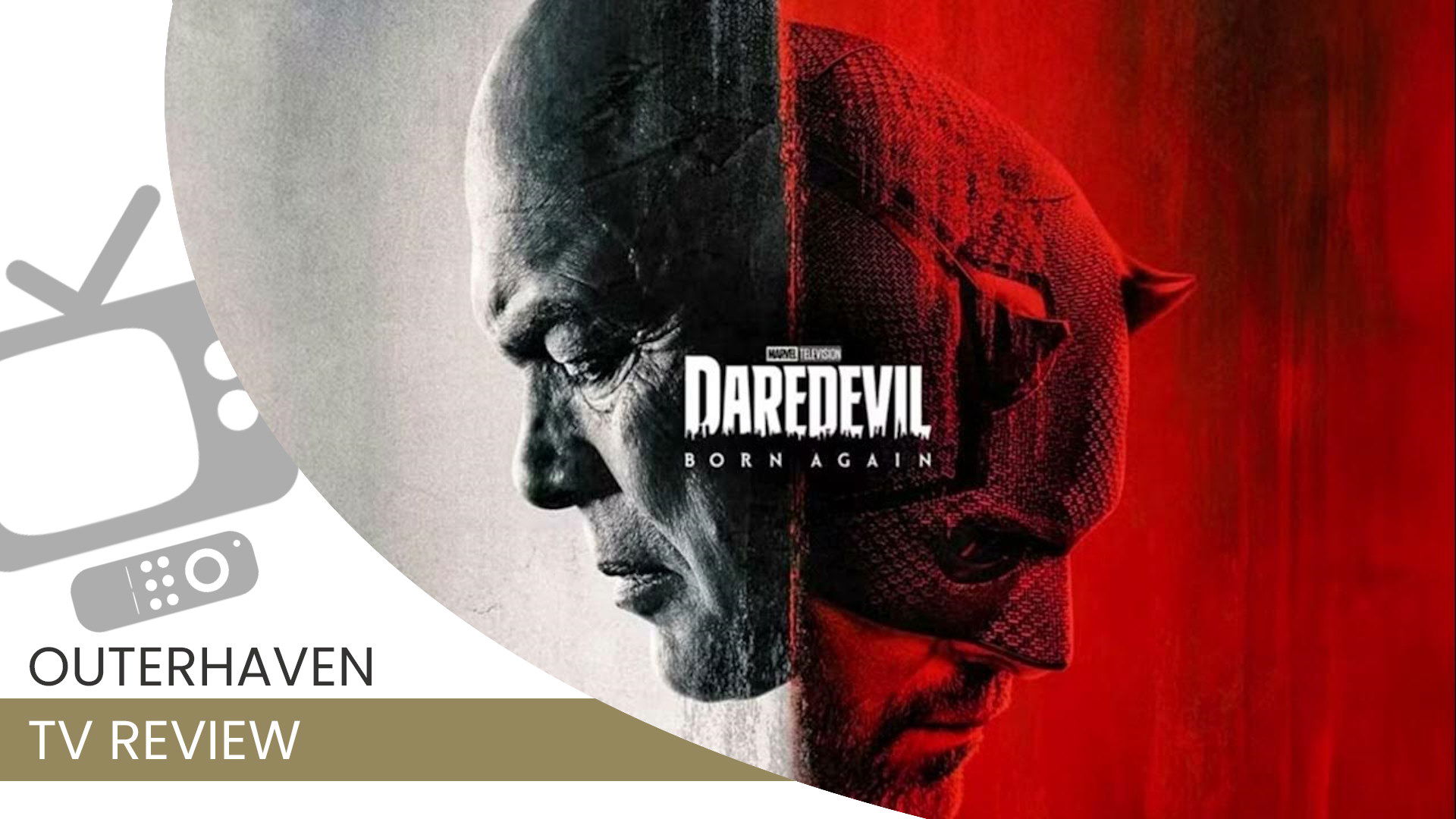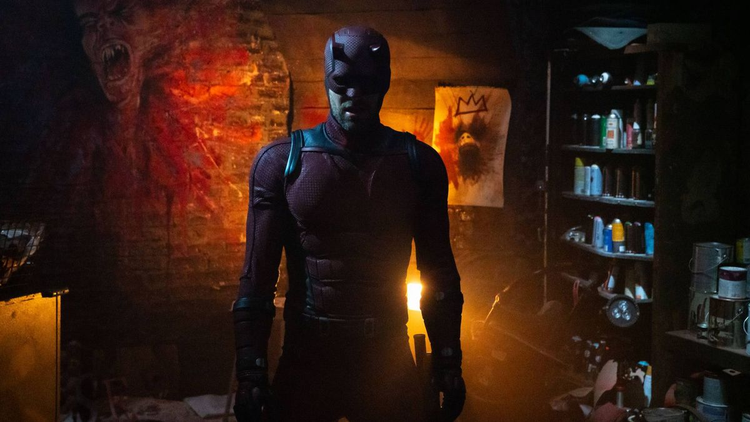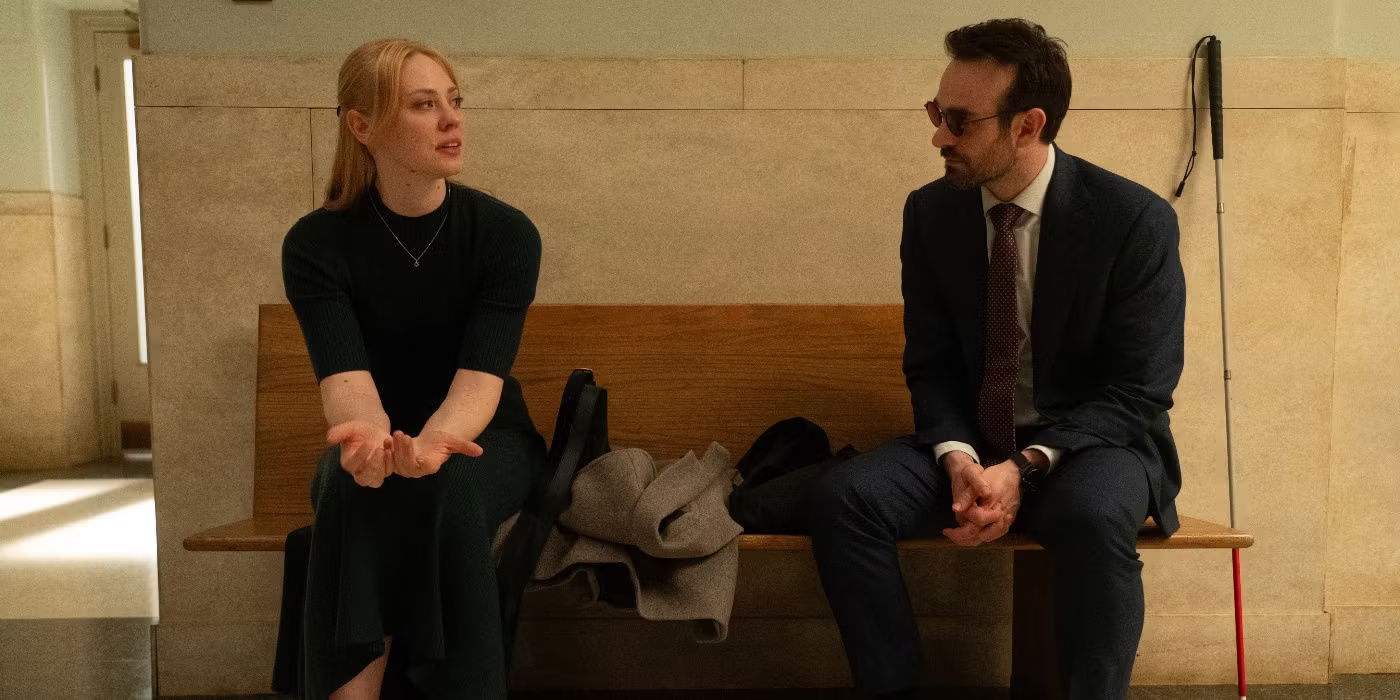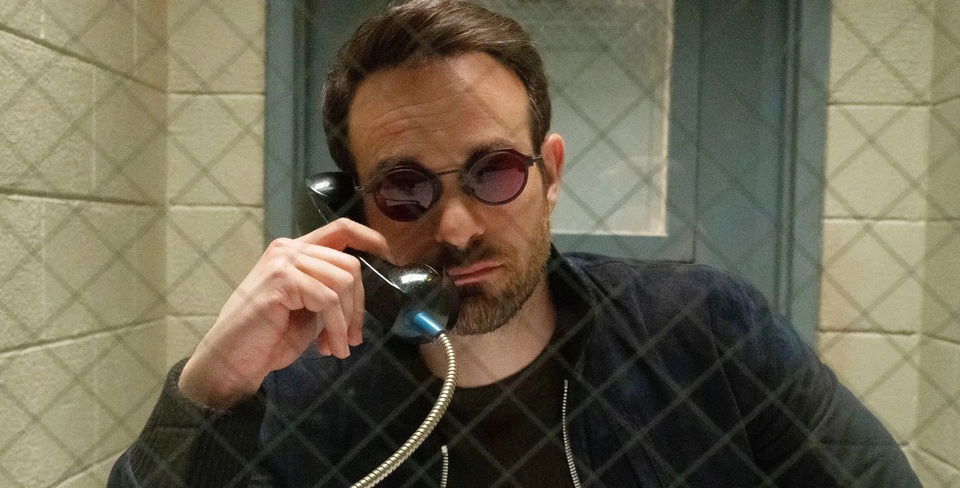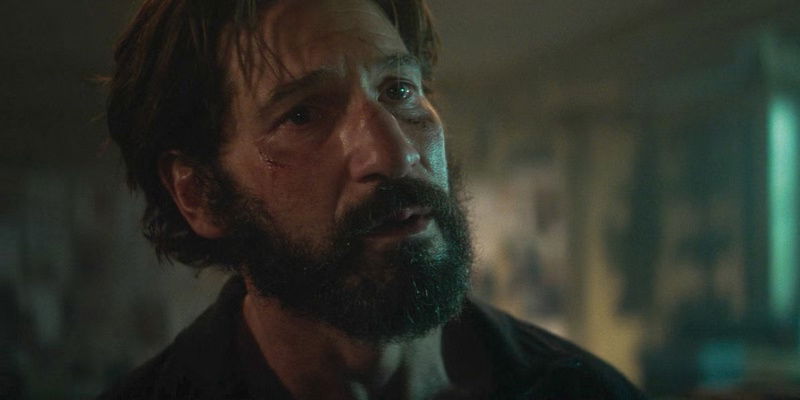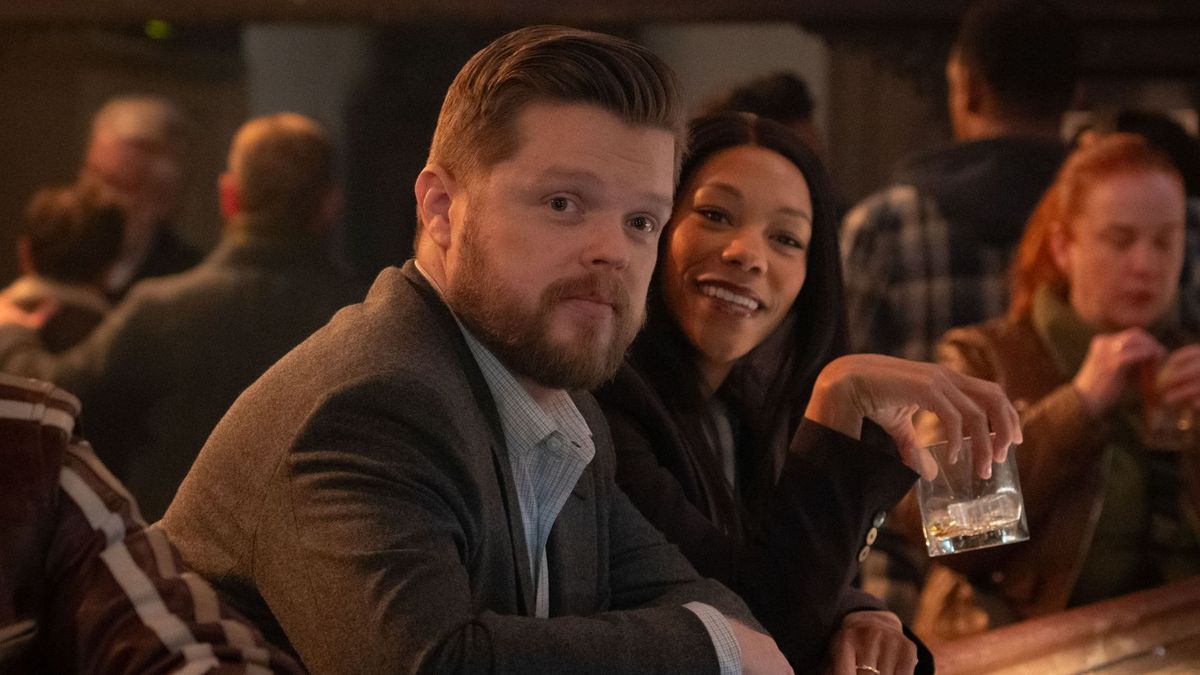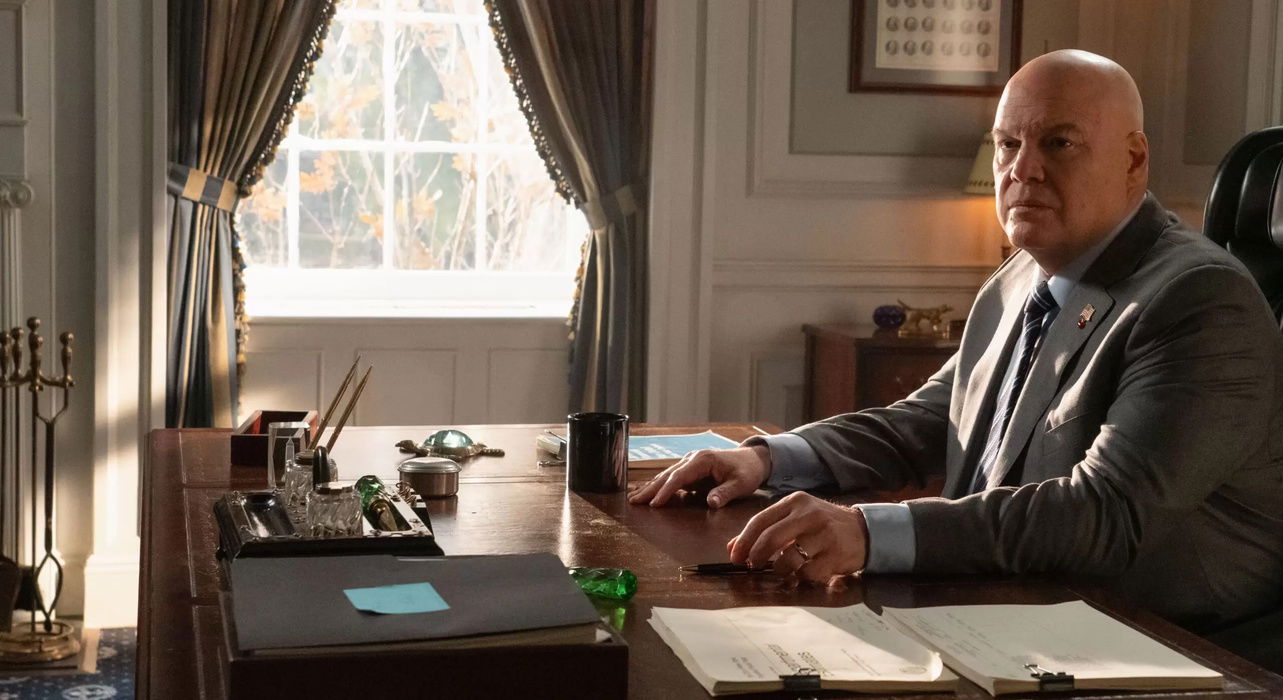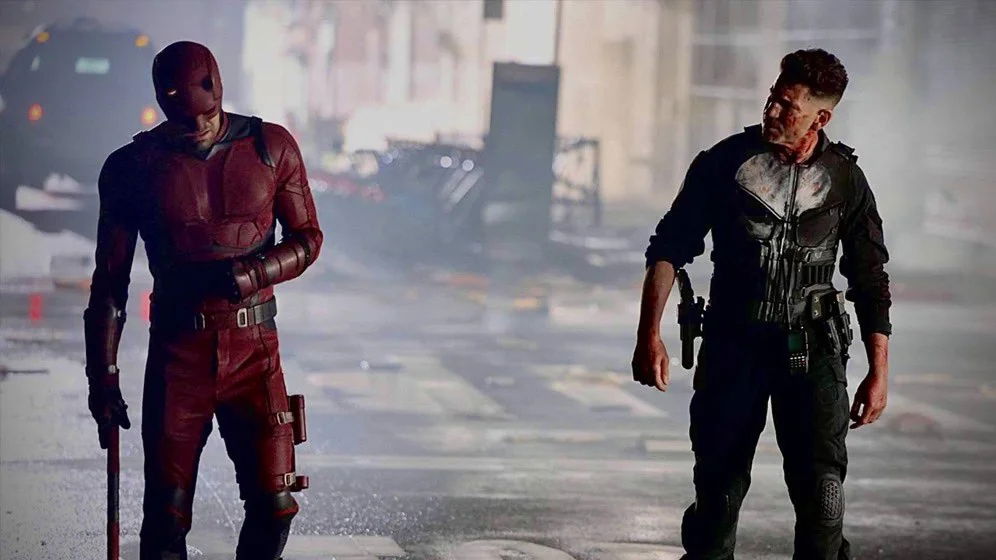In the current “superhero media” age, content saturation has set a high bar—it’s no longer enough to simply “make a good season.” You need to honor the source material or create something so exceptional that audiences embrace its divergence. Even among the best superhero series or film franchises, it’s easy to distinguish the ones that soared from those that “phoned it in.” The Netflix Daredevil series, particularly Seasons 1 and 3, was widely revered because the creators fought to make each season extraordinary. As my review of Daredevil: Born Again, Season 1 will elaborate, the MCU’s take on the show made an effort but missed key elements that originally made it shine.
Let me start my Daredevil: Born Again, Season 1 review by emphasizing that this was NOT a bad season. If you skip to my score, you’ll see that I awarded it a solid 4/5—fair, given that I genuinely enjoyed it. However, as the episodes unfolded, the flaws began to surface. You could see how this series, which endured some SERIOUS production overhauls, ultimately stumbled in achieving its full potential.
Alright, enough with my “opening statement”—let’s dive into what this story was truly all about.
The show is set “canonically” after the events of the Netflix series, which is why we see our “Tremendous Trio”—Nelson, Murdock, and Page—kicking things off. And I can’t lie, it was incredible to see them back together, picking up like they’d never left. Seriously, they make such a great team…which makes it all the more heartbreaking when Bullseye returns and kills Foggy. No cap—Matt is shattered by this and decides to hang up the mask “for good.”
Fast forward a year: Bullseye is behind bars, and Matt and Karen have moved on to new lives on opposite coasts of the country. JUST when you think things might “settle down,” Wilson Fisk returns to New York (following the events of Echo) and runs for mayor. He wins, and suddenly, the burning question becomes, “What will he and Matt do to ‘save the city’ they both claim to ‘love’ so much?”
One of the absolute standout moments of the season has to be the “diner talk” between Matt and Fisk. It was a masterclass in tension-building as both men laid bare their characters while subtly turning up the heat. The scene set the stage for how the season would unfold, hinging on the precarious balance between them. Honestly, I wish we had gotten more of that kind of brilliance.
As the season progresses, Fisk attempts to “make the city safe” by eliminating vigilantes, instituting new “task forces” that don’t exactly play by the rules, and establishing “industry bases” designed to spur New York’s growth. While these moves initially seemed “above board,” we all knew better—and that’s another key highlight of the show.
In my reviews of Hawkeye and Echo, I noted how it felt like the writers wanted Kingpin in the MCU without actually committing to Kingpin in the MCU. His defeats by Kate Bishop and Echo were so laughably easy that they undermined his character. Here, though, we finally see Kingpin in his true element. Fisk is the calculating mastermind, bending the world to his will and essentially getting away with it. Vincent D’Onofrio is an absolute treasure, and the Netflix team deserves immense credit for casting him in this iconic role. There’s a reason he and Charlie Cox were brought into the MCU—their impact is undeniable.
Oh, you thought I’d skip praising Charlie Cox? O Ye Of Little Faith. Cox delivers yet again as Matt Murdock. While we don’t see him don the costume as often as I’d prefer—despite the “Born Again” moniker—we do get ample time with him as Matt, and he truly shines in this space. The court case involving him and White Tiger was masterfully handled, complete with gripping twists that led to White Tiger’s acquittal…followed by his shocking death.
Cox’s brilliance lies in his ability to embody both sides of the coin, seamlessly portraying Matt’s internal struggle against his “inner darkness” and his effort to avoid being consumed by rage. I appreciated that Matt started a new law firm and genuinely tried to “fight for the little guy,” even when it was difficult—or when he realized his efforts weren’t making the kind of meaningful change he’d hoped for.
As expected, when things start to go wrong—particularly with the arrival of a new serial killer named “Muse”—the pace escalates rapidly. Matt reverts to his vigilante ways, Fisk continually “raises the stakes” by making life more dangerous for anyone opposing him, and his “web of influence” begins to unravel lives around him…sometimes fatally.
One of the wildest aspects of this season is how it unintentionally parallels “certain recent events” in the political world. If you catch my drift, it feels eerily prophetic. People who have no business being in power…seizing power…and then using it irresponsibly to impose their will, often successfully. It’s chilling stuff. Some comic book writers even pointed this out as the season unfolded, noting how the show seemed to predict certain outcomes—despite being filmed well before a particular election.
On a brighter note, the cinematography this season deserves serious praise. Right from episode one, it’s clear that the team aimed to distinguish this series from the Netflix version—and they succeeded. By incorporating BB Ulrich’s stylistic influence, the show beautifully captures the vibrant “vibes” of New York City and its inhabitants. The clever use of color shifts in scenes featuring Fisk, Daredevil, and Bullseye further accentuates who commands the audience’s focus at any given moment. This attention to detail sets the show apart from other MCU series in the TV lineup.
Oh, and I would be remiss if I didn’t mention one of the most eagerly anticipated returns of the season…
Frank’s back! My gosh, even with limited screen time, Jon Bernthal owns the role of Frank Castle. He’s the perfect embodiment of the character, and I REALLY wish he had more screen time this season. Sure, he’ll likely have a bigger role next season, and there’s talk of a “special” that Bernthal himself is reportedly helping oversee—but wow, he was SO GOOD this season! He just…gets it. They even included a brilliant callout to those who misuse The Punisher skull symbol without truly understanding the character or his values. I’m already excited to see more of Frank in the future.
Oh, and before you ask, yes, the fight scenes are incredible—when they happen. The opening fight scene alone is award-worthy, and a few others throughout the season are equally impressive.
So, with all of that said, why didn’t this season reach the heights of the Netflix series? Well, let’s start with the elephant in the room…
The death of Foggy Nelson was undoubtedly one of the biggest missteps this season—and yet, it happened. Why does this stand out so much? Because Foggy’s death didn’t just mean losing him; it effectively sidelined Karen for most of the season as well. Without these two as Matt’s “true foils,” the show lacked an essential dynamic. The Netflix seasons thrived by giving Foggy and Karen plenty to do, pushing them in unique directions that enriched the narrative. Here, however, they were just…gone. While I did enjoy some of the new characters introduced around Matt, you could absolutely feel the void—especially in the case of Heather.
Heather served as Matt’s new love interest, and while I really appreciated how their relationship began (thanks to another intriguing new character), it kind of…fizzled after that. Honestly, she felt like she was just “there”—a placeholder to remind us that Matt had a new romance. There wasn’t much depth or meaningful development to her character, so when she betrayed Matt by joining Fisk in the finale, it left me feeling nothing. Beyond her profession, there wasn’t anything substantial to connect with.
Contrast that with Karen Page, who appeared in just two episodes for limited screen time and STILL outshone Heather. Deborah Ann Woll continues to embody Karen with such skill and presence, and her return to Season 2 needs to happen. She’s really good, and the series absolutely needs her back in a more central role.
One significant issue I had with this season was the handling of new characters like Muse and White Tiger. White Tiger’s introduction into the MCU was unique, and the trial that followed was as good as I previously mentioned. However, his story ends immediately after his acquittal. We only learn a few sparse details about the man, and there’s hardly any showcase of White Tiger “in action.” The show essentially glosses over the power of his amulet and “why it chose him.” Yes, we meet the next White Tiger, but given her young age, there’s no compelling reason for her to suit up next season.
As for Muse, this villain was hyped up in the trailers, yet was ultimately killed off just to “make a point.” Muse, who originated from more recent comics, is a character without much of a backstory—and I wish the show had embraced that mysterious route. Instead, after being defeated by Daredevil, Muse’s backstory was hastily dumped via exposition before he was abruptly killed off. It felt like such a waste of potential. Even Bullseye, an established character, wasn’t given much depth here. If you hadn’t watched the Netflix series, you’d lack the vital context of Bullseye’s relationships with Matt and Kingpin, which are key to understanding this version of the character.
In contrast, I must highlight an ongoing issue with the MCU’s tendency to shoehorn forced connections to other shows and films just to “prove the links exist.” Despite the limited nine-episode format, they squeezed in a filler episode midway through, featuring Matt caught in a bank robbery…which just so happened to be “managed” by Kamala Khan’s father. Yes, Ms. Marvel. The show made it painfully clear that viewers were expected to connect the dots and acknowledge Kamala’s presence in the MCU timeline.
Another forced connection was to Swordsman, who hasn’t been seen since Hawkeye. Apparently, he’s now a “full vigilante” for…reasons? There were also mentions of Spider-Man (though no appearance), Echo, and other characters whose “presence” felt oddly disconnected from the main narrative. At times, this approach felt clunky and even distracted from the core of the story.
Another issue this season faced was its occasional lack of realism in key moments and character fights. For instance, during Daredevil’s battle with Muse, it took a lot to finally subdue him—only for Muse to bounce back quickly despite being choked out by Matt. And then we learn that Muse had just three months of Taekwondo training and was somehow an expert? Yeah…no.
As for Kingpin’s “rival in love,” Adam, while I LOVED that Fisk kept his promise to Vanessa by not killing Adam and instead trapping him underground as punishment, their massive brawl strained credibility. The fight included Adam shattering a brick wall with his head…and he just walked away unscathed. That level of implausibility really took me out of the moment.
Finally, while the season finale had its share of standout moments and plenty of violence, it ultimately felt a little underwhelming. The Punisher took center stage for most of the action, while Daredevil was sidelined due to his injuries and reduced to “getting an army.” Yet, the finale left it unclear who this “army” was or why they were significant, leaving the resolution feeling incomplete. The hope, of course, is that this sets up the reassembly of The Defenders (among others) to take down Fisk. But as this season demonstrated, you can’t always rely on the MCU to deliver exactly what you want.
In wrapping up my Daredevil: Born Again, Season 1 review, I want to emphasize that this WAS a good season. There were multiple episodes that had me glued to the screen, eagerly anticipating what would happen next. However, the clear effort to align it more with the MCU than the Netflix series ultimately did more harm than good.
Luckily, Season 2 is less than a year away, so we won’t have to wait long to see if this approach to storytelling pays off.
You can watch Daredevil Born Again Season 1 on Disney+.
Daredevil Born Again Season 1 Review
Summary
Daredevil: Born Again, Season 1 marked a strong return for the “Man Without Fear,” with some welcome additions to the cast and an expanded exploration of New York’s lore. However, the decision to prioritize a “continuing story” over making each season feel truly special ultimately undercut the finale’s impact. Additionally, the misuse of certain characters and the untimely deaths of others left fans missing out on moments they had eagerly anticipated for years.
The potential for redemption lies in Season 2—if it takes the direction fans are hoping for. That said, nothing is guaranteed, as this new approach has already demonstrated its risks and challenges.
Pros
- Charlie Cox
- A Truly Reborn Kingpin
- Punisher
- …Seriously, Jon Bernthal Was Made To Be Punisher
- Fight Scenes Are Still Awesome
- Terrifying Parallels to Today’s World
Cons
- Foggy’s Death and Karen’s Limited Screentime
- Misuse of Characters Like Muse and White Tiger
- Heather
- Season Finale Lacked Certain Impacts
- Forced MCU Connections…Again…
-
Daredevil Born Again Season 1 Review


